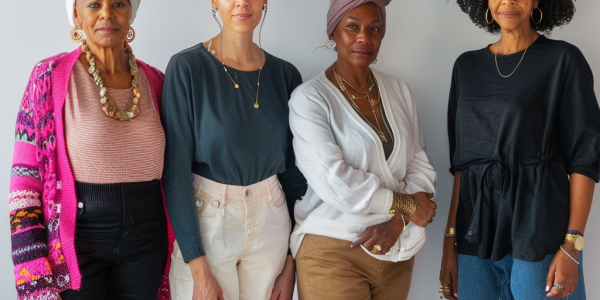Alarming Rise in Breast Cancer Rates Among Young Women in Ottawa
A recent study in Ottawa reveals a concerning trend of rising breast cancer rates among young women, with cases reported in individuals as young as their 20s. Factors such as environmental influences, lifestyle changes, and alcohol consumption are being considered as potential contributors. The study emphasizes the need for enhanced screening programs and awareness initiatives for young women to address this growing risk.
Persistent Disparities in Breast Cancer Survival Rates at the Neighborhood Level Revealed in Recent Study
Recent research in JAMA Network Open reveals persistent disparities in breast cancer survival rates at the neighborhood level, despite advancements in screening and treatment. Neighborhood disadvantage impacts access to essential services, leading to shorter survival rates. Targeted interventions are needed to address these disparities and improve outcomes.
Neoadjuvant Radiotherapy Shows Promise in Breast Cancer Treatment
Learn about the study evaluating the survival outcomes of neoadjuvant radiochemotherapy (NARCT) in early breast cancer patients undergoing breast conserving surgery (BCS) or immediate breast reconstruction (IBR). Discover how neoadjuvant radiation therapy (NART) compares to post-operation radiation therapy (PORT) in terms of breast cancer-specific survival (BCSS) and overall survival (OS) for patients aged 80 years or younger with unilateral T1-T4 invasive ductal breast cancer.
CDC Report: Low-Income, Socially Isolated, and Uninsured Women Less Likely to Get Mammograms
Low-income, socially isolated, and uninsured women in the US are less likely to be up-to-date on mammograms, according to a recent report from the CDC. The study emphasizes the importance of addressing women’s social needs to increase mammogram rates, especially for those facing multiple social deprivations. Surprisingly, the research found that Black women reported higher overall mammogram rates, contrary to expectations.
New Study Reveals Comprehensive Single-Cell Reference Map of Healthy Human Breast
A new study in Nature Genetics unveils a comprehensive single-cell reference map of the healthy human breast, revealing surprising indications of immune exhaustion in individuals with BRCA1 or BRCA2 germline mutations. Lead researcher Dr. A. D. Reed and the team’s curated single-cell reference map offers valuable insights into the cellular composition of the human breast, shedding light on the interplay between genetic mutations and immune function.
Concerning Increase in Breast Cancer Incidence
A recent study reveals a concerning increase in breast cancer cases, impacting both women and, in some instances, men. Despite medical advancements, the surge in cases, particularly among women under 50, is complex. Factors such as lifestyle changes, environmental influences, and genetic predispositions are contributing to the rise. Health experts stress the importance of regular screenings and proactive self-examinations to combat the trend.
Rising Rates of Early-Onset Cancer
Why are rates of cancer increasing among young people? Data from around the world shows a rise in early-onset cancer cases, with some forms of cancer becoming the leading cause of cancer death in adults under 50. Investigators are searching for answers in obesity rates, early cancer screening, gut microbiome, and tumor genomes, but believe the key may lie in studies tracking the lives and health of children born decades ago.
Rising Rates of Breast Cancer Diagnoses in Women Under 50
Breast cancer diagnoses in women under 50 have increased significantly in the past two decades, primarily driven by estrogen-receptor positive tumors. This research highlights the importance of early detection and the need for targeted prevention strategies, especially for younger Black women and those born more recently, who face a higher risk. Examining rates based on age, race, and tumor characteristics could guide the development of prevention strategies. The study, published in JAMA Network Open, reveals a consistent rise in breast cancer diagnoses among women younger than 50, with the majority of the increase attributed to estrogen-receptor positive tumors. The research aims to identify factors driving these increasing rates and design interventions to evaluate in clinical trials to lower the risk for early-onset breast cancer.
Importance of Early Detection in Cancer Treatment
Early detection is crucial for treating cancer. Shamilla Mirza’s proactive approach led to an early diagnosis and subsequent treatment for breast cancer. Her experience emphasizes the importance of promptly addressing any abnormalities in the body, as early detection can significantly increase the chances of successful treatment and survival.
SZA Reveals Decision to Remove Breast Implants in Candid Interview
SZA, the Grammy-winning singer, recently revealed her decision to have her breast implants removed in a candid interview with the ‘SHE MD’ podcast. The 34-year-old artist, whose full name is Solána Imani Rowe, shared her reasons for the procedure, citing concerns about her health and past experiences with breast-related issues. Her openness sheds light on the complexities and considerations involved in such procedures, emphasizing the importance of informed decision-making and thorough consultations with medical professionals.










